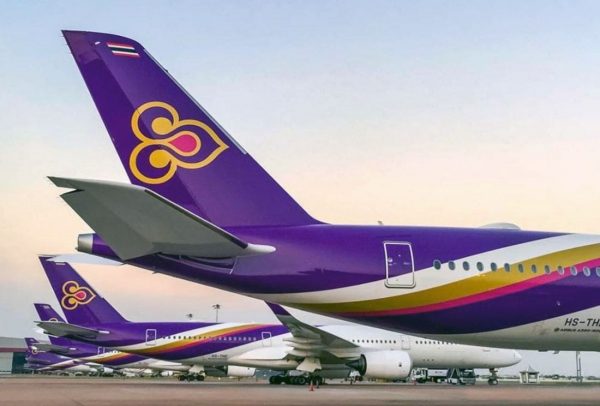BANGKOK, 8 March 2021: Thai Airways International Airways estimates it will cut another 6,000 to 7,000 jobs this year, reducing the workforce to around 14,000 employees.
Thai Airways International Public Company Limited (THAI) acting president, Chansin Treenuchagron, revealed cost-cutting measures last week after the airline submitted its financial rehabilitation plan to the official receiver to comply with the Central Bankruptcy Court order.

The reductions follow an earlier round late last year when the airline cut the workforce from 29,000 to 21,000 employees. The airline is reducing jobs to approximately 14,000 to 15,000 and is optimising the pilot pool to be in parallel with new fleet and flight hour requirements.
According to the airline’s president, other highlighted measures include reducing aircraft types from 12 to five and engine types from nine to four to reduce costs. The airline has also negotiated with aircraft lessors to charge lease based on hourly aircraft use, moves that significantly reduce expenses, the president explained.
Following the plan’s filing, creditors will receive a copy of the restructuring plan from the official receiver. However, as Thai and foreign creditors are still waiting for payments by THAI, the airline was authorised to publish a copy of the plan in a digital file format to all creditors through a QR code on the creditors’ meeting notice.
The print version of the plan is available on request at the THAI Ticketing Office at the THAI head office from 8 March 2021 onwards.
THAI confirmed the court’s appointed planner name Piyasvasti Amranand and Chakkrit Parapuntakul as Plan Administrators.
Based on THAI’s cost-saving measures so far, the airline president said he was confident the rehabilitation plan would “ensure that THAI will become a more efficient and effective airline, ultimately enabling the company to return to profitability.”
The airline has established a Transformation Office and appointed a dedicated chief transformation officer to evaluate business opportunities and execute THAI’s transformation plan. The Transformation Office is working on 600 initiatives approved by the chief financial officer.
Once the court approves the rehabilitation plan and the Covid-19 pandemic retreats, THAI says it will be ready to operate under its new vision: “A Private High-Quality Full-Service Carrier with a Strong Thai Brand.”
Mission objectives focus on regaining its position as the preferred carrier for travel to and from Thailand and will involve embracing some fee-based elements adopted by low-cost airlines currently included in its fares.
“It will include redesigning our product to deliver a high-quality experience but at a lower cost than today. By unbundling fares, customers can access cheaper basic fares and but add on ancillary purchases ( seat selection, baggage),” the acting president explained.
It plans to achieve a more focused network based on serving destinations that are profitable and investing in digital online sales to boost revenue.
It will cut people costs by 50%, implement lease and fleet changes, reduce end-to-end third-party costs, renegotiates contracts and optimise business units.
The acting president emphasises a need to change the “culture and mindsets of the organisation by adopting new and modern processes, systems (such as) a new set of KPIs and incentives matched to the delivery of the restructuring plan and the adoption of governance based on world-class private sector practices.”







